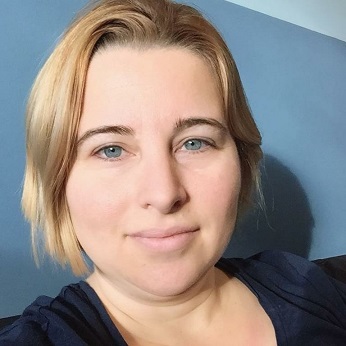June 21, 2022
by Patricia Tomasi
 A new study published in Frontiers of Psychiatry looked at whether conspiratorial beliefs about the COVID-19 pandemic post a mental health risk and the relationship between conspiracy thinking and symptoms of anxiety and depression among Polish adults.
A new study published in Frontiers of Psychiatry looked at whether conspiratorial beliefs about the COVID-19 pandemic post a mental health risk and the relationship between conspiracy thinking and symptoms of anxiety and depression among Polish adults.
“My research looks at the relationship between the severity of belief in false information about COVID-19 and the severity of symptoms of anxiety and depression,” study author Pawel Debski told us. “We have developed our own research tool - a test called the COVID-19 Conspirational Beliefs Scale. To test the severity of anxiety and depression, we used the world-famous HADS (Hospital Anxiety and Depression Scale) tool.”
Researchers assumed two perspectives with regard to the results. They wondered if COVID-19 conspiracy thinking is, as it is with regard to physical health, harmful to mental health or if it serves as a protective function in the event of disinformation.
“It is believed that conspiracy thinking can play a short-term protective role in the event of a threat and lack of sufficient information,” Debski told us. “At the same time, we assume that an
excessively intensified tendency to conspiratorial thinking is detrimental to psychological functioning and may be detrimental to human behavior. Our research results indicate that the tendency to believe in false information about COVID-19 may increase the severity of symptoms
of anxiety and depression.”
The fight against the pandemic assumed two levels of impact to stop the pandemic and protect the population. The first was social restrictions and the second was common vaccination. It seemed clear that in the event of a lethal threat, people would comply with the rules of fighting the pandemic. However, it was completely different – many groups protested against protective measures.
“At the same time, conspiracy theories and fake news about the pandemic began to spread rapidly in social media, additionally promoted by celebrities and some politicians,” Debski told us. “The matter of false information became so serious that the list of them was created by the World Health Organization. In connection with our observations, we made a decision to look at whether COVID conspiracy thinking could also be harmful to the mental health of the population.”
For the study, researchers conducted a survey involving 700 young people. They examined the
severity of the tendency to believe in false beliefs about COVID-19 and the severity of anxiety and depression symptoms using psychological tests. Next, they performed statistical procedures to estimate the relationship between a tendency to believe in false beliefs about COVID and the severity of anxiety and depression symptoms. They also checked whether the tendency to believe in false information about COVID may be involved in explaining the increase in the severity of anxiety and depression symptoms.
“The tendency to believe in false information about COVID-19 is significantly associated with an increase in the prevalence of symptoms of anxiety and depression,” Debski told us. “Moreover, it has been proven that a tendency to believe in false information about COVID may be involved in explaining the increase in the severity of symptoms of anxiety and depression.”
Considering that the research team largely assumed that conspiracy thinking was
associated with negative psychological functioning, the results did not
surprise them.
“However, they are important because there is little research showing that COVID-19 conspiracy thinking may be associated with a decline in people's mental functioning,” Debski told us. “The results show the negative meaning of the tendency to believe in conspiracy theories on important health topics. Such theories can make your anxiety and depression worse. People who influence public opinion and spread conspiracy theories about important health topics should be aware that this can pose a threat to both the physical and mental health
of many people.”
About the Author
 Patricia Tomasi
Patricia Tomasi
Patricia Tomasi is a mom, maternal mental health advocate, journalist, and speaker. She writes regularly for the Huffington Post Canada, focusing primarily on maternal mental health after suffering from severe postpartum anxiety twice. You can find her Huffington Post biography here. Patricia is also a Patient Expert Advisor for the North American-based, Maternal Mental Health Research Collective and is the founder of the online peer support group - Facebook Postpartum Depression & Anxiety Support Group - with over 1500 members worldwide. Blog: www.patriciatomasiblog.wordpress.com
Email: tomasi.patricia@gmail.com